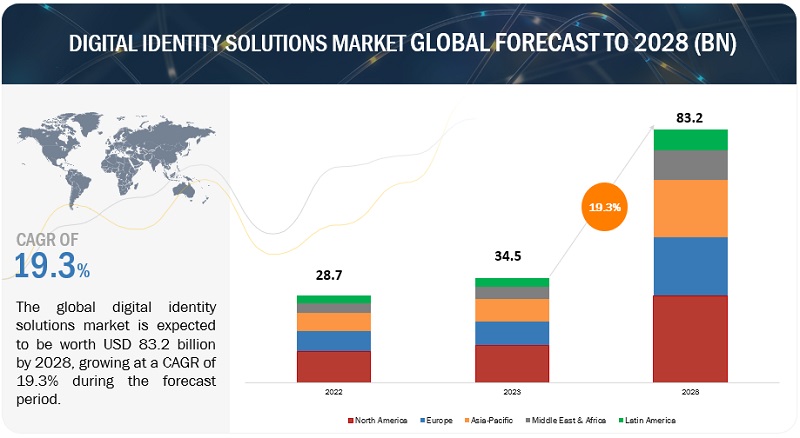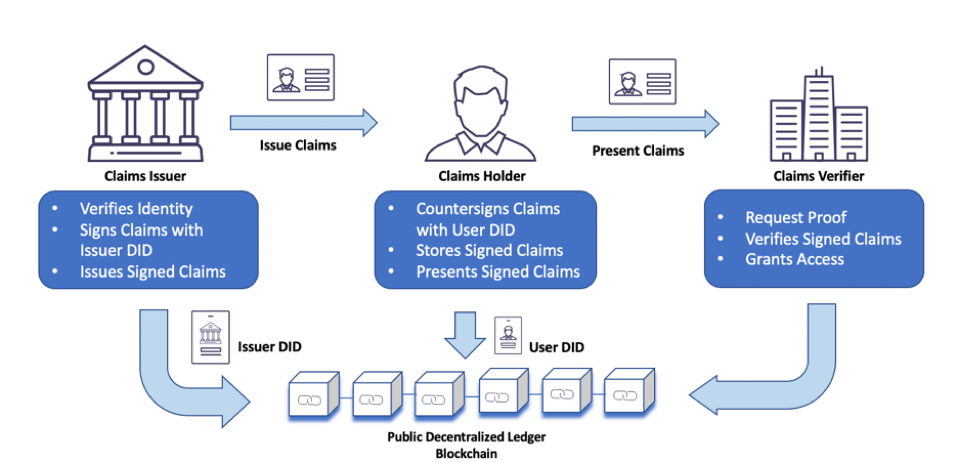Technological Progress Fuelling Growth in Digital Identity Verification
The Digital Identity Verification market is set on an upward trajectory, preparing for an impressive growth spurt in the coming year. This anticipation is fuelled by a potent mix of technological progress, a steady surge in demand, evolving consumer predilections, and fluid market mannerisms. Leading this technological renaissance are trailblazing innovations incorporating refined machine learning algorithms, sophisticated natural language processing tools, and cutting-edge Digital Identity Verification analysis software.
Data Analytics Market Boom and Its Ripple Effect
The relevance of the predicted growth becomes starkly apparent when coupled with the prediction by Statista that the data analytics market is all set to hit the $274.3 billion mark by 2022. The escalating importance of data-driven decision-making, coupled with the urgency for organisations to glean actionable insights from data deluge, are triggering a growth explosion in the Digital Identity Verification sector.
Market Forecast for Digital Identity Verification
A report by MarketsandMarkets underpins this anticipation, estimating a growth scenario from $7.6 billion in 2020 to an impressive $15.8 billion by 2025 in this market – indicating a significant Compound Annual Growth Rate (CAGR) of 15.6%.

Source: marketsandmarket.com
The Shift towards Data-Driven Business Operations
However, the prospective growth transcends mere numerical expansions and market size magnifications. It heralds an epochal shift in the methodology of businesses and their interaction with data, driving an overhaul in the landscape that finally puts data-driven strategy at the heart of business operation.
The Increasing Influential Role of Digital Identity Verification
As we stand on the brink of an era rich in data-driven decision making, digital identity verification solutions are pivotal. A consequential player in the changing global business scene, the influence of digital identity verification only promises to burgeon with each passing year. The rapid expansion of the digital identity verification market indicates a seismic and transformative shift rather than a passing phase.
Rise of Self-Sovereign Identity (SSI)
An emergent trend in the digital identity landscape is the concept of Self-Sovereign Identity (SSI). As predicted by Gartner, SSI—where individuals or organizations have ownership and control over their digital identities—will uniquely shape the future.
Understanding Self-Sovereign Identity (SSI)
Self-Sovereign Identity (SSI) is a modern approach to digital identity that gives individuals or organizations full ownership and control over their personal data. The traditional model of digital identity often revolves around third-party identity providers such as Google or Facebook. In contrast, SSI moves the control from these third-party entities back to the individual, which means that they can decide how, when, and to whom their data is being shared.
SSI relies on decentralized identifiers and blockchain technology to create a portable, interoperable, and secure digital identity. By eliminating reliance on a centralized authority, SSI enhances privacy and security while reducing data breaches and identity theft risks.
Illustration: Self-Sovereign Identity (Trust Triangle)

Key Segments Benefiting from SSI
There are several industries and sectors where SSI can bring substantial benefits.
1. Healthcare: SSI could enable patients to have complete control over their medical records, facilitating the seamless exchange of data between different healthcare providers while maintaining privacy and consent.
2. Banking and Finance: SSI could streamline customer onboarding, reduce the risk of identity fraud, and remove the need for repeated Know Your Customer (KYC) checks, making transactions faster, more secure, and customer-friendly.
3. E-government: For government services, SSI can provide secure and seamless interactions between government entities and citizens, facilitating services like tax filing, benefit claims, or identity verification in public services.
4. Education: In the educational sector, SSI can secure digital credentials, degrees, or records, allowing seamless sharing with institutions or employers and reducing the risk of credential fraud.
5. Supply Chain and Logistics: SSI can streamline the verification of goods origin, improving transparency, and reducing fraud in the supply chain.
6. Employment and HR: SSI can simplify and secure the process of verifying employee identities, background checks, and credential verification.
The application of Self-Sovereign Identity offers transformative potential across numerous industries. As businesses and individuals alike become increasingly digital and mobile, the ability to control one’s digital identity is not only empowering but also a critical step in securing a world increasingly dependent on digital interactions.
Conclusion: Embracing the New Era
The imminent growth of the digital identity verification market is not a fleeting trend. Its expansion represents a profound transformation in global business and data-driven decision-making, highlighting the sector’s increasing significance in the upcoming years and a transformation in how businesses must operate and leverage data while SSI presents a compelling shift away from traditional processes, pushing us to reconsider how personal identity is managed and authenticated in the digital sphere.
Source: www.marketsandmarkets.com/Market-Reports/digital-identity-solutions-market

